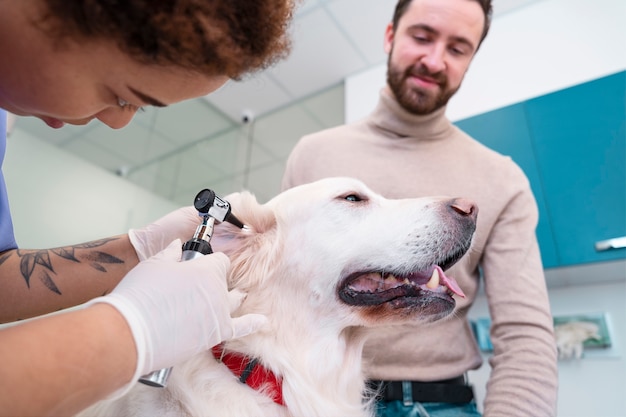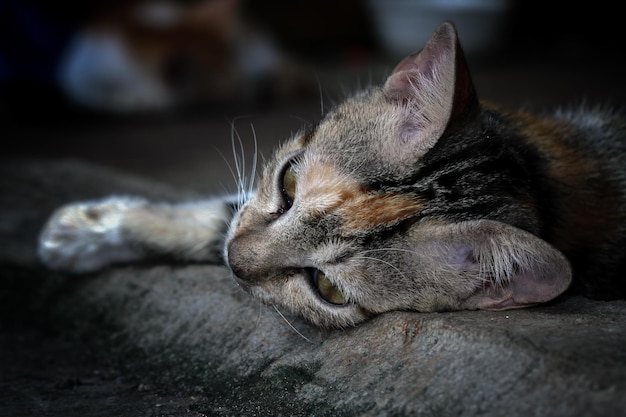Preparing Your Pet for Cooler Desert Evenings
Preparing Your Pet for Cooler Desert Evenings
As autumn settles in across Cathedral City, pet owners often notice a subtle but significant change: the desert’s daytime warmth gives way to cooler, crisper evenings. While these seasonal shifts can be a relief from the summer heat, they also bring new considerations for your pet’s comfort and health. At Ridgeline Veterinary Clinic, located at 68100 Ramon Road Suite A7/8, Cathedral City, CA 92234, our veterinary team understands the unique climate challenges faced by pets in Cathedral City and surrounding communities.
As you prepare for October’s brisker nights, it’s important to consider how these changes affect your dog or cat’s daily routines, bedding needs, hydration, and overall well-being. In this guide, we will discuss how to recognize signs that your pet may be struggling with the cooler temperatures, explain why these changes impact our furry friends, and offer practical steps to keep them cozy and healthy. We will also highlight when it may be time to schedule a wellness examination to ensure your pet is thriving during this seasonal transition. Our aim is to help you provide the best pet care for cool weather, using Cathedral City pet climate tips that reflect our local desert environment.
If you are searching for a “vet near me” to help your pet adjust to the changing seasons, our team at Ridgeline Veterinary Clinic offers comprehensive care that can be tailored to your pet’s unique needs. For more on how preventive visits can support your pet’s health year-round, visit our page on veterinary wellness exams and preventive care for pets in Cathedral City.
Recognizing When Your Pet May Be Affected by Cooler Evenings
As the temperature drops after sundown, pets can experience changes in comfort and behavior. Recognizing the early signs that your dog or cat may be feeling the effects of cool desert evenings is essential for providing timely support. You might notice your pet seeking out warmer spots in the house, such as curling up on blankets, snuggling closer to you, or gravitating toward radiators and heating vents. Shivering, especially in short-haired or older pets, can indicate discomfort. Some animals become less active in the evening, preferring to stay in one place rather than move about the house or yard.
Other signs to watch for are subtle changes in sleep patterns or appetite. Cats may avoid tiled or uncarpeted floors, and dogs might hesitate to go outside for their usual nighttime walk or bathroom break. In some cases, pets with chronic health conditions like arthritis can show increased stiffness or reluctance to get up in the morning after a chilly night. These behaviors are your pet’s way of communicating that cooler conditions are impacting their routine. If you observe any of these changes, it may be time to consider adjustments to your pet’s environment and daily schedule.
Why Desert Climate Changes Affect Your Pet
The Coachella Valley is known for its striking temperature swings between day and night, especially as fall arrives. While daytime highs can remain warm, nighttime temperatures in Cathedral City often drop quickly. Pets, especially those who spend parts of the evening outdoors or sleep near drafty doors and windows, can be sensitive to these rapid changes.
Short-haired breeds, young puppies and kittens, senior pets, and animals with chronic health conditions are particularly vulnerable. Their bodies may struggle to maintain a comfortable core temperature, leading to discomfort or even health risks. For example, senior pets with arthritis often experience increased joint stiffness in colder weather. Puppies and kittens, who have less body fat and a developing ability to regulate their temperature, need extra care as the seasons change. If your pet is in one of these groups, implementing Cathedral City pet climate tips can make a noticeable difference in their comfort.
Additionally, the shift to cooler nights may impact your pet’s hydration needs. Pets often drink less water when it’s not hot outside, but Cathedral City’s arid climate still increases the risk of dehydration year-round. Proper hydration remains just as important in October as it is during peak summer months.
Managing Your Pet’s Comfort and Health During Cool Evenings
Providing effective pet care for cool weather involves a combination of environmental adjustments, routine modifications, and regular health monitoring. For bedding, ensure your pet’s sleeping area is away from drafts and off cold floors. Placing their bed in a cozy corner, adding extra blankets, or using a padded mat can help insulate them from the evening chill.
For outdoor routines, consider adjusting walk times so your dog is outside during the warmest parts of the day rather than late at night. If your pet must go out after dark, a light jacket or sweater can provide extra warmth, especially for small or thin-coated breeds. Indoor cats may need encouragement to stay active, as they might become more sedentary when it’s chilly. Gentle play before bedtime or offering a heated cat bed can help keep their joints limber and bodies warm.
Hydration should never be overlooked, even in cooler weather. Encourage your pet to drink by providing fresh water in multiple locations, and check that outdoor water bowls do not become too cold overnight. For younger or senior pets, or those with a history of health issues, consider scheduling a wellness examination in Cathedral City to ensure they are adapting well to the season.
When it comes to preventive care, our veterinary team often recommends seasonal adjustments to wellness routines. These may include checking for early signs of arthritis in older pets or ensuring puppies and kittens have appropriate bedding and nutrition. For more information on how to care for the youngest members of your family, our comprehensive puppy and kitten care guide covers hydration tips and bedding guidance specific to the desert’s climate.
Special Considerations for Senior Pets
Senior dogs and cats are often the first to feel the effects of cooler nights. Their aging bodies may not regulate temperature as efficiently, and joint stiffness can worsen as the mercury drops. Providing orthopedic bedding, keeping their sleeping area warm, and maintaining a consistent exercise routine are important steps. For pets already on medication for arthritis or other chronic conditions, schedule regular check-ins with our veterinarians to manage medication adjustments or discuss additional therapies as needed. You can find more resources on senior pet care services to keep aging dogs and cats healthy in cooler weather on our website.
Preventive Home Care: Simple Steps for a Cozy Pet
Keeping your pet comfortable during cool desert evenings does not have to be complicated. Start by evaluating where your pet sleeps each night. A simple move from a tiled floor to a carpeted area, or adding a plush blanket, can prevent chills. For outdoor pets, ensure they have a shelter that is insulated, dry, and free from drafts. If your cat or dog is especially sensitive to temperature, heated beds designed for pets offer a safe way to provide extra warmth.
Monitor your pet’s hydration by making water easily accessible and changing it regularly. Some pets drink more from moving water sources, so a pet fountain may encourage better hydration. Adjust your pet’s evening meals if needed; a small, warm meal can provide comfort and help maintain body temperature. Keep up with regular grooming, as clean, brushed fur insulates better and helps your pet retain warmth.
Stay attentive to changes in behavior, appetite, or energy. Early intervention is key if your pet seems uncomfortable or unwell. Keeping up with regular wellness exams and preventive care for pets in Cathedral City is one of the best ways to catch any developing concerns before they become bigger issues. For puppies and kittens, follow expert advice on routines and nutrition; our Essential Puppy and Kitten Wellness Care Guide is a great starting point for new pet parents.
When Should You Seek Veterinary Care for Seasonal Changes?
While many pets handle the transition to cooler evenings with ease, some may need extra help from your trusted veterinary team. If you notice persistent shivering, lethargy, limping, or reluctance to move, these could be signs that your pet is struggling with the change in temperature. Sudden changes in appetite, excessive thirst, or unusual behavior warrant a consultation as well, as they can indicate underlying health issues exacerbated by the weather.
Senior pets, very young animals, or those with chronic conditions should have their health monitored closely during seasonal shifts. Any pet showing discomfort, behavioral changes, or worsening of existing symptoms deserves professional attention. If you are ever uncertain about your pet’s well-being, scheduling a visit with our veterinarians in Cathedral City is the safest course of action. Our team is here to support your pet’s health every step of the way, offering guidance and care tailored to our local climate.
Remember, addressing issues early can prevent more serious health complications. Our veterinary professionals can recommend specific Cathedral City pet climate tips that address your pet’s unique situation, from dietary adjustments to bedding recommendations and more.
Conclusion: Keeping Your Pet Healthy, Happy, and Warm in Cathedral City
As Cathedral City’s evenings grow cooler, taking proactive steps can ensure your pet remains comfortable and healthy. Simple changes to bedding, hydration routines, and outdoor activities can make a significant difference. Remember to watch for signs that your pet may need extra support, especially if they are very young, aging, or managing ongoing health challenges. Our commitment at Ridgeline Veterinary Clinic is to provide personalized pet care for cool weather, grounded in expertise and compassion for the unique needs of our desert community.
If you have questions about your pet’s comfort as the seasons change or want to establish a preventive care routine, we invite you to schedule an appointment with our veterinary team. Whether you are searching for a “quality veterinary services near me” or simply need practical advice for your dog or cat, our wellness examination services in Cathedral City are designed to help your pet thrive in every season.
To book a consultation or learn more, contact Ridgeline Veterinary Clinic at (760) 507-1500 or visit us at 68100 Ramon Road Suite A7/8, Cathedral City, CA 92234. Our veterinary professionals look forward to supporting you and your pet through every change in Cathedral City’s climate.
This article is for informational purposes only and does not substitute for professional veterinary advice. For specific health concerns, always consult your veterinarian.




















